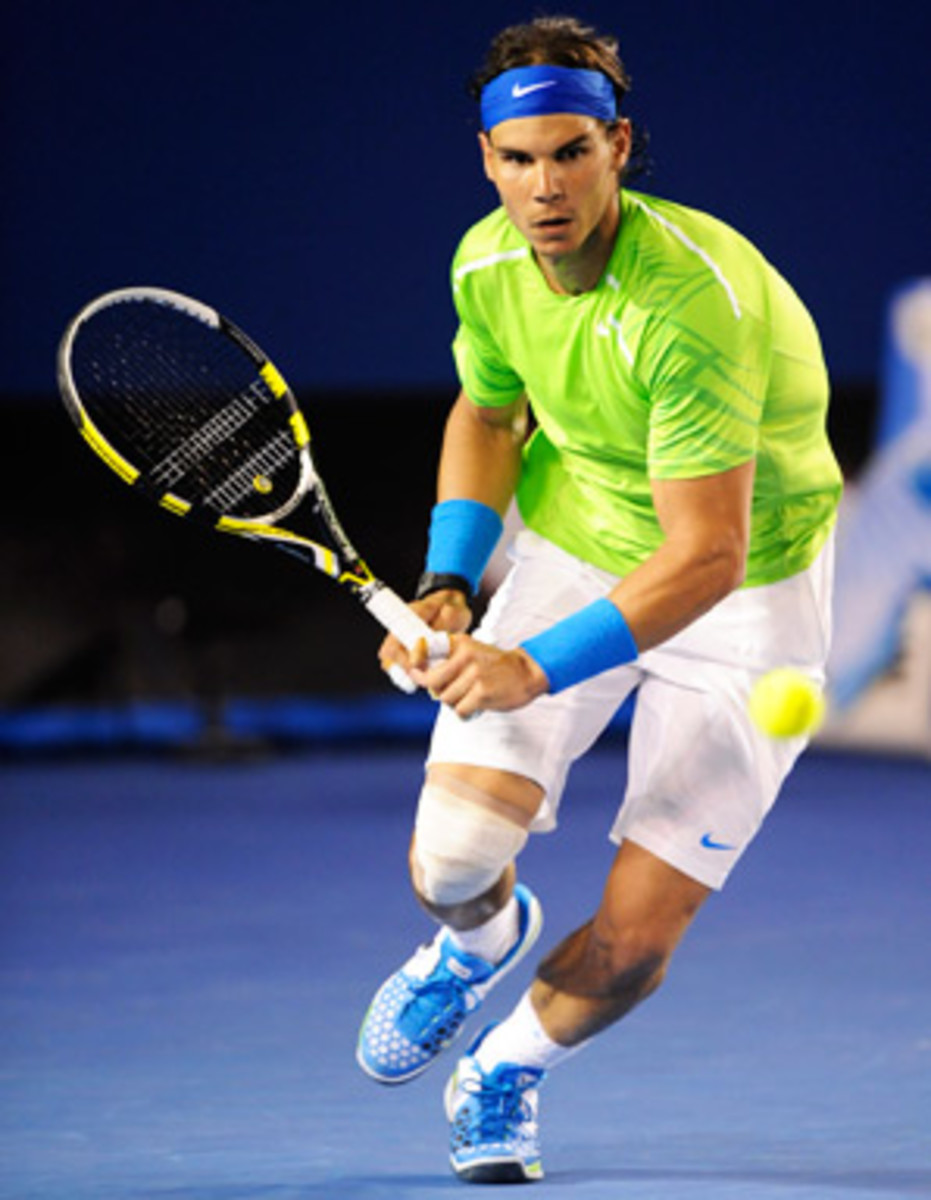
Roles reversed as Nadal downs Federer on superior shotmaking
Likewise, as Rafael Nadal made his way out to his Australian Open semifinal on Thursday night, he did not emerge from the tunnel saluting the crowd, smiling at his wife, Mirka, or gently tapping the strings of the Wilson racket in his right hand.
Confused? You should be, so great was the role reversal in Federer-Nadal XXVII -- yes, the occasions are sufficiently epic to warrant busting out Roman numerals -- once the match started.
In the previous meetings, the two have performed their assigned roles, one of many reasons this is such a special rivalry, the best in sports. Federer would do his thing, pulling off shots that no other player would even conceive, much less execute. Nadal, meanwhile, would persist and resist, relying on his relentless defense and superior mental strength. It was almost a form of class warfare, the Lord against the artisan. One would win out, usually by the smallest of margins.
So what happened in Nadal's 6-7 (5), 6-2, 7-6 (5), 6-4 victory Thursday? Federer came out with an early bit of mental warfare, Nadal-style, opting not to serve or receive but to play on the near side of the court. O-Kay... Federer then struck first -- so often Nadal's M.O. -- racing to a 3-0 lead with aggressive play. Nadal rallied. But it was less with his characteristic grinding than with real brilliance, a series of preposterous shots worthy of the Federer compendium. In a tiebreaker, Federer showed superior poise, marrying bold and audacious play with accuracy, to nail the first set.
In the second set, Nadal again brought the brilliance. One winner in particular demands its own paragraph. At 3-2 in the second set, Federer hit a shot to the corner that was angling into courtside signage. Nadal caught up with the ball and, on the dead run, uncorked a forehand. He didn't slap the ball around the post, a difficult but plausible shot. He hooked it crosscourt around Federer, who had taken to the net. This is as fine a piece of shotmaking as you'll ever see -- particularly given the weight of the occasion -- something to rival anything Federer has pulled off in his deep highlight reel.
And the hits kept coming. Nadal won the second set with backhand passes up the line. With half-volleys off his Nikes. With drop shots that peeked over the net like Kilroy and then died. (Nadal even got mad at Hawk-Eye, normally Federer's bugaboo.)
What kept Federer in the match? His defense and his scrambling. Time and again he won points with rally-prolonging gets worthy of Nadal. In a third-set tiebreaker, he kept the Nadal impersonation going. He scrambled, tried to neutralize his opponent's power and picked his spots. He missed shots, but it wasn't for lack of aggression. And he fought like hell. Down 6-1, facing five set points, Federer rallied and won four straight, sowing seeds of doubt -- usually Nadal's forte. Nadal finally closed it out, but he had to work for it.
The fourth set was more of the same, Nadal dictating play, serving aggressively and pulling off a welter of oh-no-he-didn't-just-do-that winners. On the other side of the net, Federer picked his spots but again often won points by grinding. After breaking Federer with still more slick shotmaking, Nadal served for the match. Like a certain tenacious Spaniard, Federer did not make it easy, staving off two match points, making Nadal win it.
Which he did. After Nadal fell to court as if he'd won a final, he was interviewed about the result. He spoke glowingly of his opponent. "Roger is the best of all time," Nadal said. But then, channeling his inner-Federer, he remembered where he was, who was on hand and gracefully added, "Him and great Rod Laver." The crowd cheered as loudly as it had throughout the match.
Beyond the Trading Places routine, there were other dimensions that distinguished this clash from others. ATP politics have done what Grand Slam finals could not, creating a rift between the two -- one I'm told is hardly resolved, despite their public statements to the contrary. While there was nothing but sportsmanship and fair play on the court, there was also a palpable absence of the usual organic warmth. (If there was ever eye contact between the two throughout the match, I didn't see it.)
More important, for the first time in nearly seven years, Federer and Nadal played a Grand Slam match without the trophy on the line. This was only a semifinal. As fine a victory as this is for Nadal, he'll have to come back on Sunday and win an additional match, perhaps against his more recent nemesis, Novak Djokovic, against whom he went 0-6 last season, all in finals.
Of course, if he can figure out how play like Nadal and Federer at the same time, he'll give himself a hell of a chance.




